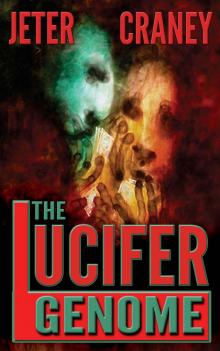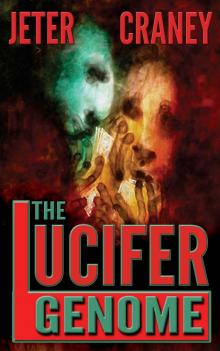- Home
- Glen Craney
The Fire and the Light Page 2
The Fire and the Light Read online
Page 2
Surrounded, Esclarmonde played coy. “Sir, your words are so leavened with erudition, I fear they transcend my modest understanding.”
Folques curled a seductive grin. “After this day, my shy fledgling, you’ll not be allowed to hide behind that shell of innocence.” He circled her and sang:
Good lady, if it please you, suffer that I love you
Since it is I who suffer therefrom, and thus
would I be unharmed by pain,
but rather we would share it equally.
Yet if you wish me to turn elsewhere,
take away that beauty, sweet laugh, and
charming look which drive me mad,
and only then shall I depart.
Dozens of moist eyes turned on Esclarmonde pining for an expression of requited love. Singed by the heated scrutiny, she managed an awkward half-curtsy. Being chosen for adoration in the troubadour’s chansons was indeed exhilarating. Her name was even being mentioned in the royal courts. And Folques was persistent, having ensconced himself in Foix for a month to woo her. But she had never been in love. Was this what it was supposed to feel like? She proceeded to do what she always did when flustered—she fled the scene.
Abandoned, Folques bounded to his feet and recovered his swagger. He reassured the vexed crowd by producing a scarf kept hidden in his sleeve for just such exigencies. “The lady has left me a token of her heart!”
Esclarmonde slipped furtively into the great hall through the servants’ postern. Hundreds of nobles stood admiring the architectural renovations with their heads upturned and mouths gaped like goslings. The Marquessa had transformed the once-stolid chamber into a temple of lucent conviviality by replacing the sinking rafters with stone arches and studding the melon dome with golden flecks to mimic a starry night. The new bas-reliefs and lozenged wainscotting drew murmurs of a Moorish influence. Fresh rushes had been strewn and cloves were roasting in the warming kettle to chase the winter’s mustiness. Yet the matron’s proudest alteration was also the most miniscule: In the niche above the dais sat a stunning triptych of the Adoration of the Magi, painted in tempera by an Italian monk named Master Esiguo. The artist had portrayed the Holy Family with such shocking realism that the Cardinal of Padua was threatening to launch an investigation. The Marquessa relished the brewing scandal as only adding to the work’s virtue and value.
While the attendees pressed up to see the icon, Esclarmonde covered her head and eddied against the flow in the hope that her tardiness would go undetected, but the flash of her gown’s sheen gave her away. Her brother captured her arm and pulled her into an alcove.
“Do nothing to disgrace us this day,” ordered Count Roger de Foix.
She fought off his rough hold. “I’m old enough to manage my affairs!”
Roger’s face was shadowed in the grisaille monochrome that mirrored the morose state of his soul. He bored in upon her with his smoldering gray eyes so bloodshot that his veins seemed on the verge of overflowing. “Keep away from those scheming minstrels. The Bishops of Toulouse and Narbonne will be in attendance. I warn you. Give them no reason to find you licentious.”
“I am not licentious!”
Roger’s unchecked inspection alighted on her revealed waist. “Then dress yourself accordingly. And speak only when addressed. There are those here whose alliance would do much to ensure our survival.”
“I’ll not be dangled as bed fodder for some greased pig!”
“The churchmen will seize upon any excuse to annex our lands.”
“If Father were here he would—”
“Your provocations will not return him from the grave!” said Roger. “No matter how much you would benefit from the back of his hand!”
Esclarmonde escaped Roger’s clutches and huffed off. She had suffered too many times the Marquessa’s apologia for her brother’s brooding temper. Nicknamed “Wolf” because of his predilection for prowling about in search of affronts, he had been forced to take charge of their remote province while still a callow boy. The burden had filled him with a simmering, melancholic rage, and when taunted about his immaturity and stunted height, he was quick to remind anyone at the point of his dagger that the Lionhearted had dispatched ten thousand infidels before turning twenty. She was about to round back and lecture him on her own rights as a viscountess when the Marquessa caught her eye.
Corba enforced her mother’s silent command and pulled Esclarmonde to the seat beside her. Corba frantically scanned the hall for the knight to whom she had secretly vowed her heart. “Lord Perella is not here.”
“I’ll never give myself to a man!” vowed Esclarmonde. “They are brutes!”
“I must announce your decision at once,” said Corba.
“You’ll do no such thing!”
Corba clamped on Esclarmonde’s hand. “My prayers are answered!”
Raymond de Perella, the vassal who maintained Roger’s chateau at Mirepoix, stood at the entry. Bearded and auburn-haired, he was stout and bowlegged from a life in the saddle—an eligible seigneur, Esclarmonde conceded, if not particularly comely. Only eighteen, he had already grown the bountiful girth of a man twice his age, the fruit of an almost-religious devotion to never missing a feast. Jocular and sanguine, he regaled all he met with rippling jests and slapped backs as he made his way to the next round of salutations.
Esclarmonde’s attention swiveled to a tall, lean-boned knight accompanying Raymond. The stranger possessed a mutinous jaw and a narrow Nordic face that was fair and devoid of beard. His chatoyant eyes, permuting from azure to gray with the light, swept the hall as if assaying the order of battle. A thin scar—the remnant of a blade wound, she suspected—marred his right cheekbone. The imperious manner in which he carried himself brought to her mind the ruthless discipline of a caliph’s shakiriya bodyguard. When he removed his riding mantle, the nobles hushed and backed away as if visited by the Devil himself. Underneath he wore a white habit emblazoned with a splayed red cross.
What is a Knight Templar doing here?
Esclarmonde had heard stories about the secretive order of celibate monks recruited by St. Bernard to protect pilgrims in Palestine. The Templars had grown so mythic as a fighting force that they were widely regarded as a species of exotic beast, half lion and half lamb. They answered only to the Holy Father, an accommodation that made them suspect with both clergy and royalty.
Raymond spied the girls from across the hall and wedged a path through the crowd. “My fond demoiselles, I’d not miss your initiation into the mysteries.”
Freckles flaming from blush, Corba fluttered her fan awkwardly. “I pray, sir, you’ll not be too harsh in your judgment.”
“I will always appear harsh next to your beauty, Lady Corba.”
Esclarmonde rolled her eyes at their palaver. She studied the Templar, who lingered two steps behind Raymond, equally disgusted by the cooing. He discovered her locking stare on him and blinked in a moment of disrupted concentration. She smiled in conquest; her beauty had discomfited a warrior who spent years disciplining his mind to focus only on God and the flash of scimitars.
Raymond detected their silent exchange. “My ladies, may I introduce Guilhelm de Montanhagol, most recently of Caesarea.”
Esclarmonde extended her hand. “You are a first for us, sir. We have never enjoyed the attendance of one of God’s chosen warriors at these proceedings.”
Not one to stand on ceremony, the Templar did not reciprocate the warm welcome. “I am here on a charge more pressing than this frivolity.”
Esclarmonde retracted her hand as if it had been bitten. “Frivolity? What could be more important than defending Love from its detractors?”
“Well struck!” chortled Raymond. “On your guard, Montanhagol. The Viscountess has bested many a knight errant in a joust of wits.”
Unimpressed, the Templar maintained his defiant stance. “I have been summoned to this god-forsaken wilderness to apprehend heretics hiding in those mountains.”
Esclarmon
de cocked her head in a parry, loosing a strand of hair. When the Templar tired of their sparring and moved to depart, she stopped him in mid-step. “Why not save yourself the effort and arrest everyone in this hall?”
“Esclarmonde!” scolded Corba.
“Seeking God’s grace through the intercession of a lady is heresy in the eyes of the Church,” said Esclarmonde. “Is that not so, sir?”
The Templar turned on her with a glare of withering scorn. “I never discuss blasphemous matters, particularly with credulous fillettes who have never stepped beyond the boundaries of their own shadow.”
Esclarmonde’s chin recoiled. Tactless knave! How dare he?
The Templar lorded over her his spoils—her flabbergasted silence.
Raymond broke up their standoff. “We must take our leave and allow you ladies to prepare for your shining hour.” He kissed Corba’s hand and whispered, “You shall pass the test with banners flying.”
When the men were out of earshot, Corba spun on Esclarmonde and berated her through set teeth, “Must you antagonize every man that has the misfortune of walking within bow shot of your mouth?”
“Do you think he despises me?” asked Esclarmonde.
“Of course not. Raymond knows your flighty moods.”
“I don’t mean Raymond.”
A moment passed before Corba realized Esclarmonde was referring to the Templar. Flushing, Corba nearly shouted, “Why not just seduce a priest?”
The girls were burned by surrounding stares. Esclarmonde acted as if she had not heard Corba’s outburst. When suspicions were finally allayed, she said sotto voce, “He wasn’t honoring his celibate’s vow when he looked at me.”
This time, Corba channeled her outrage into a quivering whisper. “You are insufferable! A blind beggar could stumble over your feet and you’d be convinced he’d just swooned. This very morning you professed devotion to—”
A bell rang the session to order. On the dais, the Marquessa called the docket. “Our first case is brought by Pierre Vernal. State your dilemma, sir.”
A rakish poet bedizened in a side-pointed au courant cap and crimson silks came to the fore with a mincing step. “May it please the court, I and another gentleman vie for the affections of the same lady. She first deigned a held glance upon me. Not until the day after did she touch the hand of my rival.”
Esclarmonde paid no attention to the pompous cad. Instead, she monitored the infuriating Templar who stood with folded arms at the rear doors, shuffling impatiently as if planning his escape.
The Marquessa detected her distraction. “May I introduce one of this season’s initiates? My goddaughter, Esclarmonde de Foix.”
Corba kicked under her gown at Esclarmonde’s ankle.
“Stop your fidgeting or I will—” Esclarmonde discovered all eyes riveted on her. Lashed by Corba’s irritating smile, she stood slowly.
“My dear, you have studied the Code,” reminded the Marquessa. “What is your proposed ruling? The glance or the touch?”
Esclarmonde saw that the Templar had delayed his departure to witness her comeuppance. She blistered him with a pinching sneer. Apparently you’ve not taken a vow against snickering. I’ll wipe that off your face soon enough. She straightened her posture as she had been taught and replied, “The glance is the more profound gesture and must therefore be given precedence.”
The Marquessa betrayed no hint of her opinion. “Your deduction, please.”
Esclarmonde aimed her answer at the Templar. “For some, the caress is forbidden. For others, it is easily avoided. But Love will not be denied the eyes.”
“Continue,” said the Marquessa.
“One alone can steal a touch. Two must conspire in the shared glance.”
Impressed by her cleverness, the audience gave shouts of bon trabalh—all but the Templar, whose wry smile was transmuted into a frown of disappointment on finding that Esclarmonde had turned disaster into victory. Yet she was afforded no time to enjoy the triumph—her attentions had alerted Folques’s honed intuition of what passes between a gentleman and a lady. Before she could disarm the bard’s suspicions with a reassuring glance, he shot to his silkhosed feet and stood between her and the monk.
“Madame Justice,” said Folques. “I would pose an interrogatory.”
“Good sir,” said Marquessa, “It is to you that inquiries about Romance should be addressed. Many believe you have crafted the art to its highest form.”
Folques paused to bask in the admiring nods. “Lady Esclarmonde displays wisdom equal to her beauty. I would be remiss if I did not seek her counsel. May I ask her: Is it possible for one to be married and still be in love?”
Esclarmonde’s mind raced. What could he intend by such a strange question? After a hesitation, she replied, “Not to the same person.”
Folques held the confident look of a fisherman reeling in a catch. “No? But what if one is wedded to God? Shall he be allowed a lover outside his sacred betrothal?” He punctuated the question with a spearing glance at the Templar.
Esclarmonde had expected a more difficult query. “But of course.”
The assembly murmured its surprise. Folques came to a jangled halt, eyeing Esclarmonde with one lid raised and then the other. He had not expected that answer. “I am certain, my lady, that you do not mean—”
“God Himself wishes it,” insisted Esclarmonde.
Folques was thrown on both heels. “Of course you’re not suggesting that you have firsthand knowledge of the Almighty’s intentions.”
“Did He not tell the Israelites that ‘I am a jealous God. I shall have no other gods before me?’”
“So I am told,” said Folques, his voice tentative. “Though I hasten to advise that neither of us are studied in theology.”
“Rule Five,” explained Esclarmonde. “Love exists not in the absence of jealousy. If God loves us, He must be jealous. By divine law, then, we must have other lovers. For God is all-knowing and would not be jealous without cause.” She waited for the applause, but a dangerous silence rebounded on her. Too late, the Marquessa’s stricken look informed her of the grave error: She had forgotten her godmother’s admonition against revealing her covert instruction in Latin. Lay reading of the Vulgate, particularly by women, was viewed by the clerics as evidence of possible demonic seduction. Roused from their lethargy, the Bishops of Toulouse and Narbonne conferred in susurrant exchanges and ordered their scribes to retrieve their pouches. Folques paced with an inward gaze that suggested he was weighing a gambit of great import. He stole an sobered glance at her, one so out of character yet mirroring her own throbbing angst. Had he been trying to dissuade her from the very line of questioning that he had initiated? Why had she not decoded his warning sooner?
After a pensive circumnavigation, Folques turned to the Marquessa and said, “I wish to make a legal proclamation of love.”
The matriarch lurched forward. “Sir?”
“To Lady Esclarmonde.”
The proclamation—Courtesy’s equivalent to a thrown gauntlet—set off a clamor of excitement; a singer’s immortality could be set by such bold tactic.
The Marquessa gripped her armrests in barely suppressed vexation. “I trust you understand the full import of this request?”
Folques preened with confidence, but the worry crinkles and labored breathing divulged his recognition of the proposal’s gravity. Yet if he did not divert the clerics, and quickly, Esclarmonde might be called to answer for heretical utterances. Worse even, his own reckless verses could be drawn into the inquiry. “If the lady accepts, I shall forever forego singing to other ladies.”
“And she in turn would be required to decline the advances of other gentlemen,” cautioned the Marquessa.
Esclarmonde sat in a fog. She had never learned the defense for such a motion. Yet this much she did remember: The Rules required a lady to present an answer forthwith, for to delay or seek counsel was tantamount to an insult. If she refused, no troubadour would ever again attem
pt her heart for fear of suffering the same indignity. If she accepted, her name would be immortalized. Yet she would be tied to Folques in a kind of monogamy, banned from accepting the verses and flirtations of others. His proffer was more binding than a betrothal; a married lady could still be courted in matters of a chaste heart. She had always dreamt of such a moment. Why was she paralyzed with indecision? She scanned the chamber—the Templar held her in his inscrutable gaze.
He is your champion.
She searched for the source of that discarnate command. From a high pedestal, a statue of the Blessed Virgin looked down on her with serene ebony eyes. Waves of light and shadow flickered across the icon’s glossy face, imbuing it with changing expressions. She heard another voice—was it her own?—announce:
“I wish to invoke the Beloved’s Prerogative.”
Never in this august assembly had such reckless words been uttered. The air was so volatile that a single spark threatened to ignite a conflagration of protest. The Beloved’s Prerogative was an arcane procedural tactic that permitted a lady to challenge the worthiness of a professed lover.
Esclarmonde knew at once that she had panicked. The desperate legal maneuver would only delay the inevitable. There were several talented word-smiths in attendance, but none had come close to besting Folques in competition. As the troubadour searched for some hint of her intention, she prayed he would divine her disinclination and retract his motion.
Like a wilted lilac in sudden bloom, Folques reclaimed mastery of his insouciant air and met her challenge with a speculative smile. “I am grateful for the opportunity to prove my good faith.”
The Marquessa had no choice but to allow the motion to proceed. “The lady must appoint an advocate to test the affiant. Each gentleman shall address a verse drawn on the spot. Judgment shall be by acclamation. Should the advocate prevail, the lady shall remain unfettered, with no mark against her honor.”
Esclarmonde glared at the contemptuous crusader-monk who had caused this catastrophic cascade of events. If she had to forfeit her freedom to be courted, at least she could require him to share the humiliation. “I choose the Templar.”

 The Lucifer Genome
The Lucifer Genome The Twelfth Tribulation: A Short Story of the American Civil War
The Twelfth Tribulation: A Short Story of the American Civil War The Lucifer Genome: A Conspiracy Thriller
The Lucifer Genome: A Conspiracy Thriller The Spider and the Stone: A Novel of Scotland's Black Douglas
The Spider and the Stone: A Novel of Scotland's Black Douglas The Fire and the Light
The Fire and the Light The Twelfth Tribulation
The Twelfth Tribulation